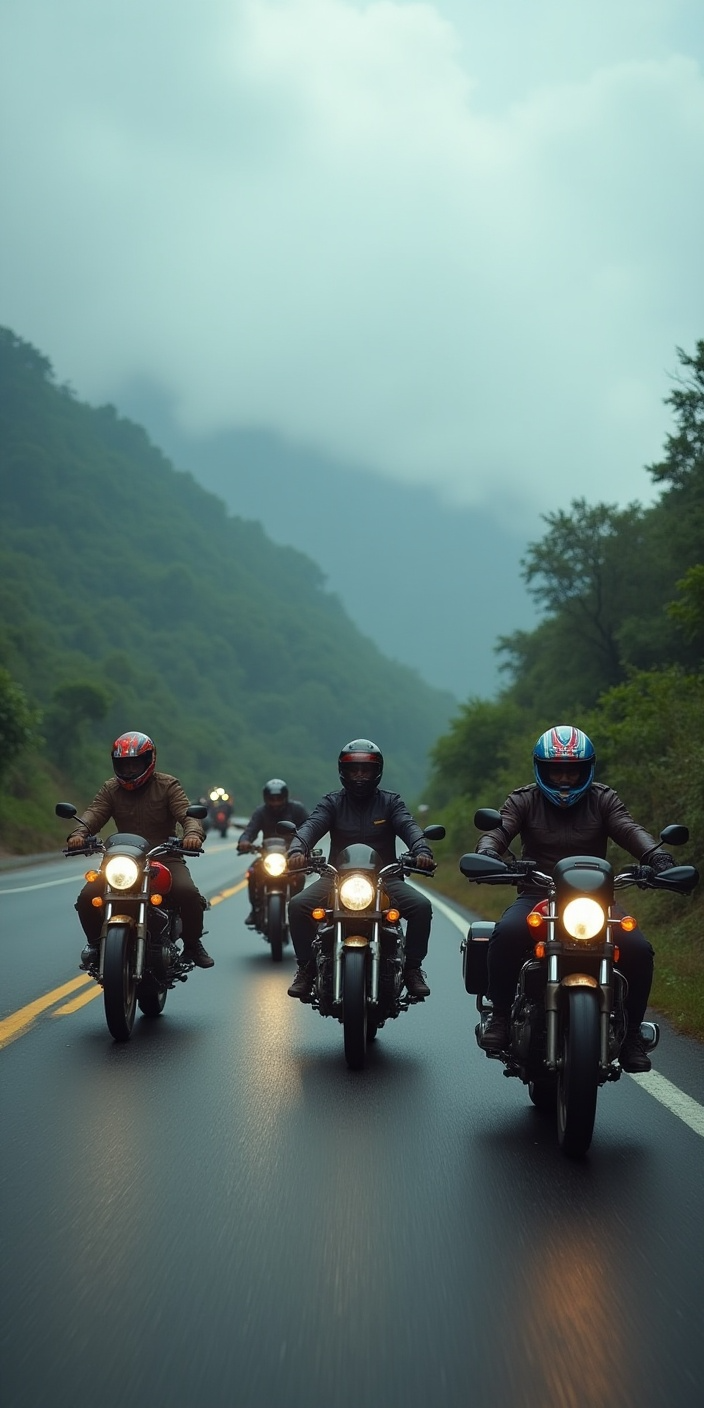Group motorcycle adventures are one of the greatest joys for Indian riders, bonding with friends, discovering new routes, and sharing the road. However, group rides also bring unique challenges. From unexpected breakdowns to interpersonal disagreements, every biker should know how to handle conflicts and navigate emergencies with confidence.
This guide, collated and refined by the ReiseMoto team for the Indian motorcycle riding community, offers practical, actionable group ride emergency tips with a focus on group ride rules in India, safety, and real-world experience. Let’s get rolling!
1. Pre-Ride Planning: The Foundation of Safety
Every successful group ride begins before the engines start. Discuss the route, set clear expectations, and establish roles such as lead and sweep rider. A pre-ride briefing is crucial: review the itinerary, stops, and what to do if anyone gets separated from the pack. Ensure everyone has packed essentials using our Group Ride Safety Checklist.
Product tip: Carry waterproof touring luggage or a dedicated bike trip emergency kit in India to keep essentials safe, no matter the weather.
For comprehensive preparation, check our group ride safety checklist and pre-ride essentials.
2. Communication is Paramount
Good communication prevents most group mishaps and misunderstandings. Use clear hand signals for stops, hazards, and emergencies the key to strong group ride etiquette. Modern helmet communication systems are fantastic for longer Indian rides, letting the group coordinate or call for help if needed. Use helmet Bluetooth intercoms for longer trips.
- Hand signals: Keep everyone in the loop, especially if mobiles or intercoms fail.
- Pre-agree on the signals refresh before every trip.
Read our article for a more detailed list of Indian group ride etiquette and hand signals.
3. Assign Roles: Lead and Sweep Riders
Designate an experienced rider as the group leader to set the pace and manage the route. The sweep rider (at the back) ensures no one is left behind and is prepared to help with breakdowns or emergencies. This structure is at the heart of group ride rules in India.
- The leader should know the route and anticipate hazards.
- The sweep manages the group’s integrity and assists when problems arise.
4. Plan for Separation: Meeting Points & Regrouping
Even with the best planning, riders can get separated traffic lights, diversions, or sudden stops can break up a convoy. Always have agreed regroup points or stops so everyone knows what to do if divided.
5. Group Ride Safety Checklist: Tick Before You Leave
Here is a concise group ride safety checklist for Indian bikers:
- Helmet, jacket, gloves, boots, and first aid kit
- Fully charged phone, ID, and emergency contacts
- Tool kit and basic spares (e.g., cables, fuses, puncture repair)
- Water, snacks, and rain gear (essential for unpredictable Indian weather)
- Proper bike inspection (brakes, tyres, lights, fluids)
You can get the whole riding essentials collection at Reisemoto.
6. Handling Breakdowns on Bike Trips
If a breakdown occurs:
- Move the bike and rider safely off the road
- Use hazard lights or warning triangles
- The sweep or a designated fixer assists others to wait in a safe area
- Diagnose and attempt repairs only if it’s safe; call for roadside assistance if needed
- Never attempt to fix the issue in traffic flow
Internal link: Our tips for handling breakdowns on long rides offer more details on preparing for mechanical mishaps.
7. Conflict Resolution: Keeping Peace in the Pack
Disagreements can arise around pace, route, or even breaks. Here’s a quick process for conflict resolution in a motorcycle group:
- Encourage open, respectful discussion
- Listen to all perspectives
- Appoint a neutral mediator if conflict persists
- Aim for solutions, not blame
- Document agreements or changes in plan
Team-building activities and regular catchups away from rides can strengthen relationships and reduce tension.
8. Emergency Response: When Accidents Happen
If a crash or medical emergency occurs:
- Prioritise safety: stop only if it’s safe and avoid crowding the scene
- Designate one or two helpers; the rest move up the road to wait
- Call emergency services promptly, providing clear information
- Use the first aid kit as necessary; don’t move injured riders unless essential
It’s smart to have at least one group member with basic first aid training.
9. Managing Weather and Environmental Hazards
Sudden downpours, fog, or debris are common in India. Maintain safe distances and adapt to conditions:
- Drop to single file in poor visibility
- Use hand signals to communicate hazards spotted by the lead
- Slow down and regroup more often during adverse weather
Internal link: Prepare for the monsoons with our Essential Biking Rain Gear guide.
10. Debrief and Learn After Every Ride
After the ride, gather feedback. What went well? Where could safety or communication improve? A quick debrief helps everyone grow and strengthens camaraderie for future adventures.
Group Ride Emergency Tips: Quick Reference Table
|
Situation |
Action Points |
|
Breakdown |
Move safely off-road, sweep assists, call for help if needed |
|
Conflict |
Open discussion, mediate, aim for solution |
|
Separation |
Regroup at pre-decided points, keep calm, wait together |
|
Accident/Emergency |
Assist safely, call emergency, apply first aid if trained |
|
Bad Weather |
Adjust formation, increase distance, slow pace, signal hazards |
Expert Advice for Indian Riders
Remember: Proper planning, clear communication, and calm problem-solving are the backbone of safe and enjoyable group adventures. Carry a robust toolkit, embrace safety gear, and foster a culture where every rider’s input is respected. The journey is just as important as the destination, so ride safe, ride together. Looking for new helmets, jackets, or more touring gear? Explore the full ReiseMoto product range to ride smarter and safer this season.
-Team Reisemoto

